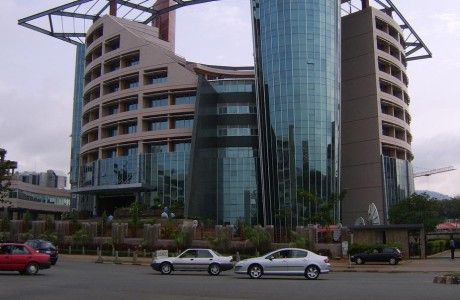Africa’s largest lender, Standard Bank Group Limited, wants to “redeploy” proceeds from the sale of its stake in Russia’s Troika Dialog into Africa, where it has identified Nigeria for expansion.
The company also identified Angola, Ghana and Kenya as parts of its plan.
“These are the big high growth markets where we’re still relatively small,” Chief Executive Officer Jacko Maree said by phone at the weekend.
Standard Bank, based in Johannesburg maintained that it appointed Rob Leith as head of strategic expansion.
Leith will head a team that will “look for acquisitions,” Maree said.
The Nigeria’s economy will expand 6.9 percent this year, the IMF forecasts, and 8 percent according to the government.
A growing middle class and oil wealth may help Nigeria’s economy overtake South Africa to become Africa’s biggest by 2023, according to Razia Khan, head of Africa economic research at London-based Standard Chartered Plc.
To make that happen, Governor of Central Bank of Nigeria (CBN) Lamido Sanusi has maintained below-inflation interest rates to help ailing banks such as Finbank Plc and Oceanic Bank Plc and kept the naira close to 150 to the dollar to ease pressure on inflation and encourage investment.
The IMF said on February 17 that his interest-rate policy contributed to inflation surging to 15.6 percent the year earlier.
The bank should abandon its multiple objectives of trying to boost lending for infrastructure, and focus on price stability, it said. The key interest rate is currently 8 percent, below May’s inflation rate of 12.4 percent.
“If the IMF says to me it’s not my role, then whose role is it and who is doing it?” the governor, dressed in a pin- striped suit and red bowtie, said in the interview in March. “As long as the Central Bank of Nigeria Act has given it as one of its functions a developmental role, it’s really up to me to decide whether or not to use those powers.”
Sanusi also rejected the IMF’s criticism that his policy of currency intervention has led to an overvalued naira, saying that companies needed good road and rail links and a reliable electricity supply to become competitive, not a weaker naira.
He is proposing a central bank guarantee on pensions held by commercial banks, thus freeing up about $13 billion that they can use to lend to power projects. Last year, the central bank lent 200 billion naira ($1.3 billion) to state-owned Bank of Industry, which it made available to commercial banks at 1 percent interest for lending on to small businesses.
The pension plan is part of a bigger campaign to persuade the state to invest more money in infrastructure and spend less on itself. Sanusi was hauled before the House of Representatives in December after he angered lawmakers by criticizing the 136.3 billion naira that he said parliament spends on itself.
The country’s electricity industry generates a 12th of the electricity of South Africa, while its population is three times the size at 150 million.
Now, the government is preparing to sell six transmission and 11 generating companies this year, with Nigeria’s Dangote Industries Ltd. and India’s Tata Group and Essar Group among potential bidders, according to the Bureau of Public Enterprises. Sufficient power supplies would enable the economy to grow 10 percent a year, Sanusi says.



